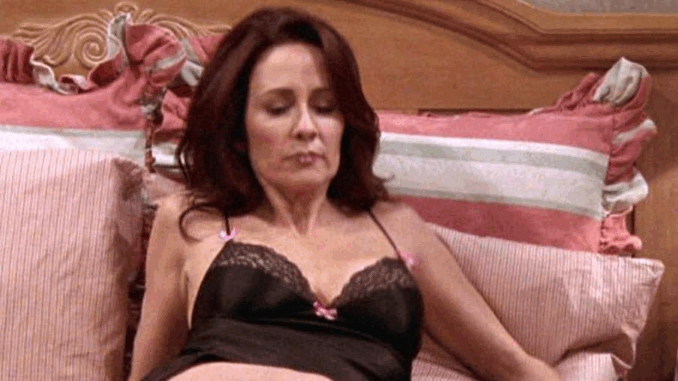
When Everybody Loves Raymond first aired in 1996, it quickly became a cultural phenomenon. With its witty humor, relatable family conflicts, and the perfect balance of sarcasm and warmth, the sitcom ran for nine seasons and became one of CBS’s crown jewels. On screen, it all looked easy — a picture-perfect cast delivering flawless comedy week after week.
But behind the laugh tracks and family dinners, things weren’t nearly as harmonious as they seemed. Over the years, whispers have circulated about tension, jealousy, and shocking secrets that the cast and producers would rather fans never discover.
Today, nearly two decades after the finale aired, the rumors have only grown louder. From feuds over money to on-set meltdowns, let’s pull back the curtain and explore the alleged dark secrets behind Everybody Loves Raymond.
1. Ray Romano’s “Nice Guy” Image Was a Mask
Ray Romano, who played the lovable but clueless sportswriter Ray Barone, was the heart of the show. But according to multiple insiders, Romano wasn’t always the easygoing dad fans adored.
Several crew members claimed Romano often arrived late to set, demanding extra rewrites to highlight his character’s jokes. One source even alleged:
“Ray didn’t just want to be the star — he wanted to make sure no one else outshined him. If Brad Garrett got a bigger laugh in rehearsal, you could bet the script would be tweaked before taping.”
Though Romano has publicly denied being controlling, whispers persist that his “everyman” persona was carefully constructed PR.
2. Brad Garrett Felt “Cheated” Out of Stardom
As Robert Barone, Ray’s towering and insecure older brother, Brad Garrett became a fan favorite. But behind the scenes, Garrett was allegedly bitter about his salary compared to Romano’s.
Insiders say Garrett frequently clashed with producers, insisting that his role deserved equal pay because Robert was “half the reason people tuned in.” At one point during season 6, he reportedly walked off set, refusing to film until CBS renegotiated his contract.
Though the issue was resolved, Garrett later admitted in interviews that he felt undervalued. Fans now wonder: did Robert’s constant feelings of inadequacy mirror Garrett’s real-life frustrations?
3. Patricia Heaton vs. Doris Roberts: A Silent Feud
On-screen, Debra Barone (Patricia Heaton) and Marie Barone (Doris Roberts) had a famously tense mother-in-law/daughter-in-law relationship. Off-screen, things weren’t much better.
Crew members have hinted that Heaton and Roberts clashed frequently, often about politics, scheduling, and even wardrobe choices. Roberts, the seasoned veteran, allegedly resented Heaton’s influence with producers. Meanwhile, Heaton reportedly found Roberts “condescending and dismissive.”
Though the actresses always denied a feud, one insider claimed:
“Some of the most heated exchanges between Debra and Marie felt so real because they basically were real.”
4. Peter Boyle’s Explosive Outbursts
Peter Boyle, who played Frank Barone, was beloved for his grumpy yet hilarious portrayal of the patriarch. But sources say Boyle sometimes blurred the line between character and reality.
According to crew reports, Boyle occasionally erupted on set, yelling at younger actors and storming off during long tapings. Some attributed it to his perfectionism, others to stress. While his outbursts never became public scandal, insiders still whisper about the tension they caused.
One former production assistant recalled:
“When Boyle lost his temper, everyone froze. He was brilliant, but he could also be terrifying.”
5. The Writers’ Room Was a Battlefield
The show’s success was built on sharp writing, but getting those scripts on paper wasn’t easy. Rumors suggest the writers’ room was one of the most combative in sitcom history.
Several former writers revealed that Romano, who had creative control, often clashed with Phil Rosenthal, the show’s creator. Arguments over storylines reportedly got so heated that staff had to step in to separate them.
There are even stories of episodes being scrapped entirely after weeks of work because Romano “didn’t like the punchline.”
6. Patricia Heaton’s Off-Screen Controversies
While fans adored Heaton as the long-suffering Debra, the actress herself was no stranger to controversy. Her outspoken political and religious views often made headlines, and insiders claim it occasionally caused tension among the cast.
One rumor suggests that during the 2000 election cycle, Heaton’s heated debates with fellow cast members created a near “civil war” backstage. Though never confirmed, crew gossip insists certain episodes were taped with lingering resentment hanging in the air.
7. The End Wasn’t So Happy
When Everybody Loves Raymond wrapped in 2005, the finale was billed as a bittersweet but amicable goodbye. But some say the truth was far messier.
By the final season, Romano’s $1.7 million per-episode paycheck reportedly created bitterness among co-stars who earned a fraction of that. Garrett allegedly considered quitting before the last season, while Heaton was rumored to have demanded more screen time in her contract negotiations.
Behind the tears and hugs during the finale, insiders claim the cast was relieved the tensions would finally end.
8. What They Don’t Want You to Remember
Even today, cast members prefer to reminisce about the laughs and success, avoiding the darker memories. Interviews focus on the “family atmosphere,” the awards, the devoted fans. But for those who were there, the behind-the-scenes drama was as real as the sitcom itself.
One anonymous crew member summed it up best:
“It was America’s favorite family on TV — and a real family feud off it.”
Conclusion: The Legacy of Secrets
Everybody Loves Raymond remains a television classic, its reruns still drawing laughs from old fans and new audiences alike. But beneath the polished sitcom exterior lay a world of rivalries, egos, and untold stories.
Perhaps that’s what made the show so relatable: the comedy came from chaos, both scripted and real. And while the cast may never admit to the feuds and frustrations, the whispers will always follow them.
Because in Hollywood, everybody may love Raymond — but behind the cameras, not everybody loved each other.
